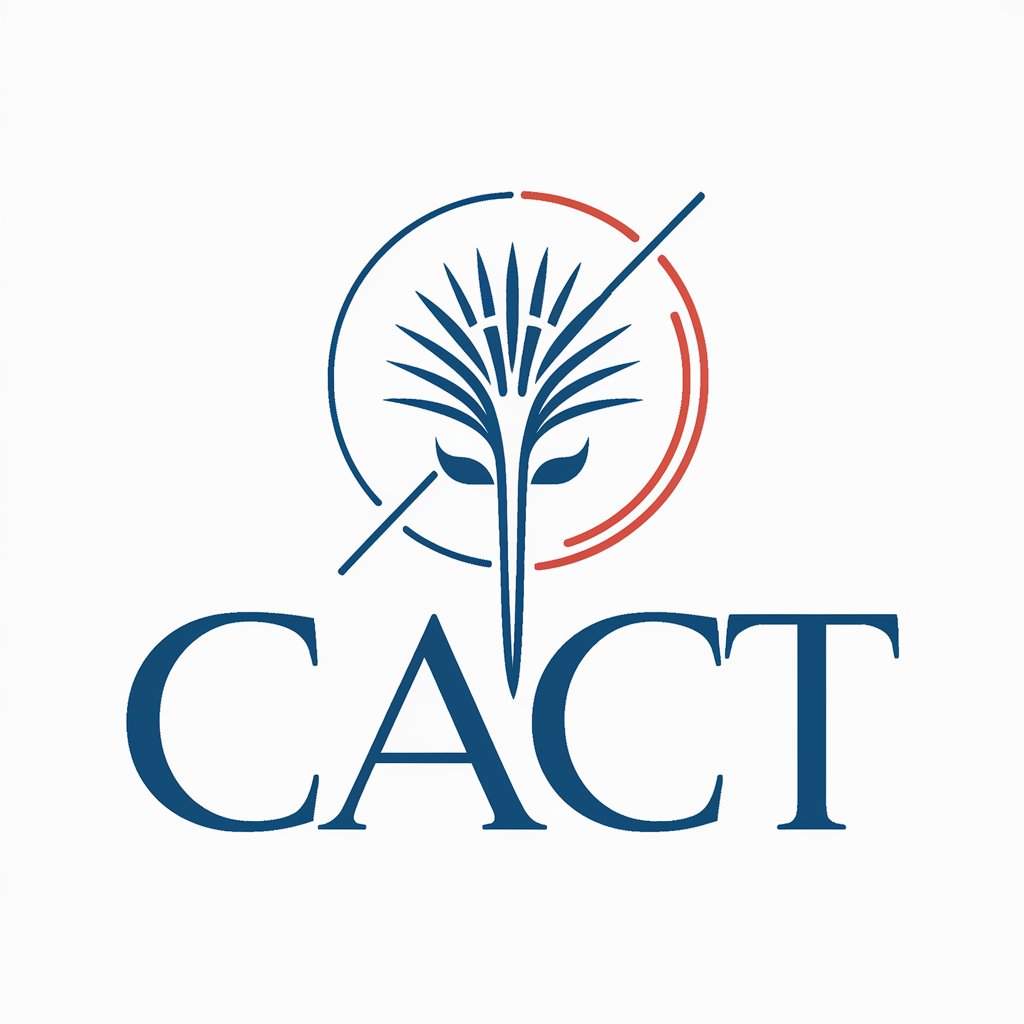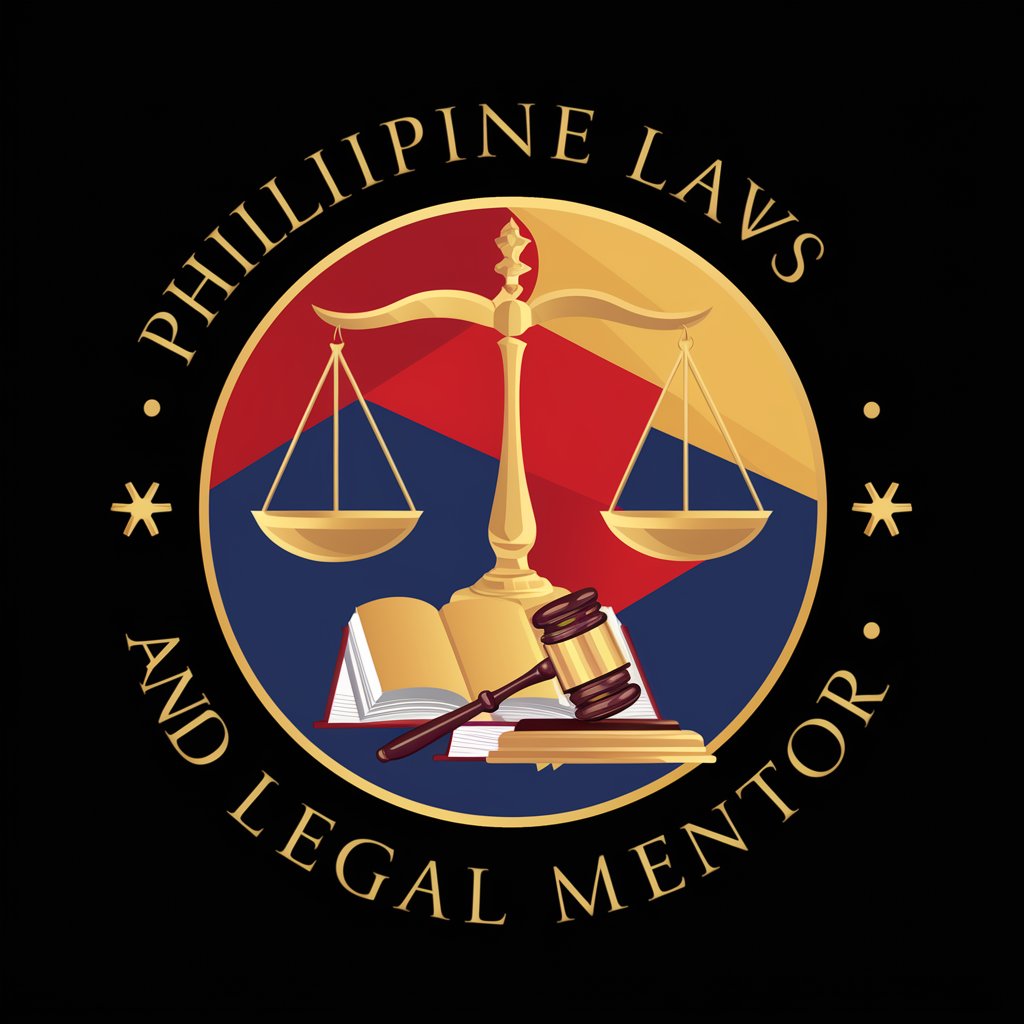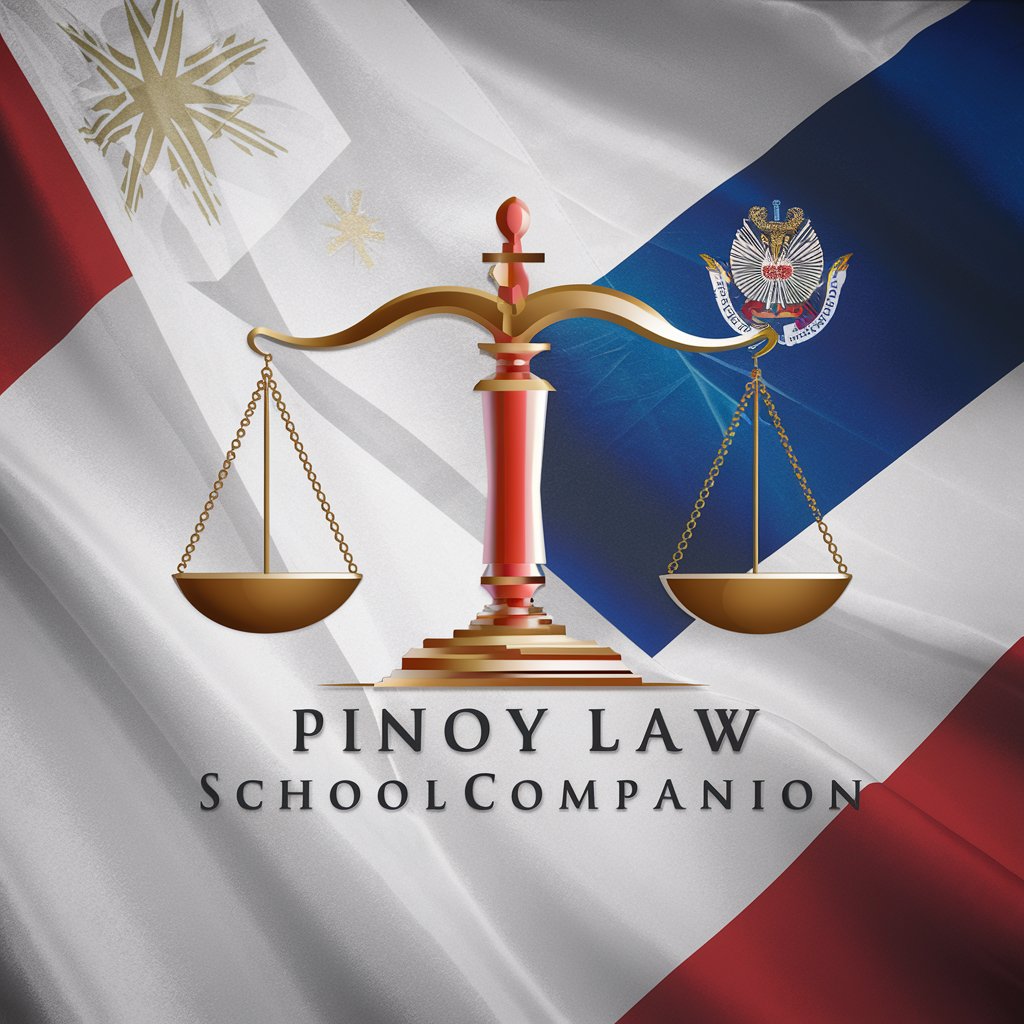
Philippine Law Guide - Philippine Legal Insights
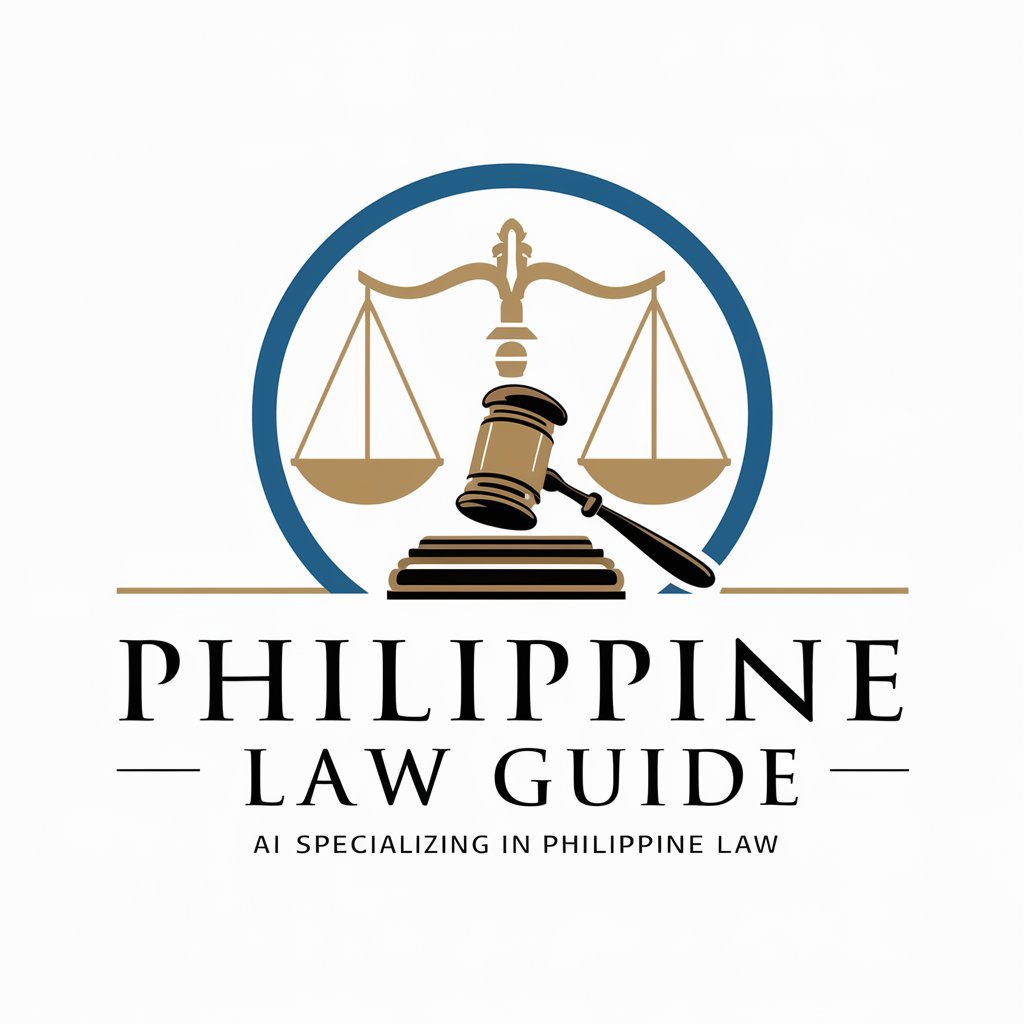
Welcome to Philippine Law Guide. How can I assist you with Philippine legal information today?
Demystifying Philippine Law with AI
Can you explain the penalties for...
What are the punishments under Philippine law for...
Describe the legal consequences of...
What is the imprisonment term for...
Get Embed Code
Overview of Philippine Law Guide
Philippine Law Guide is a specialized digital assistant designed to provide comprehensive information on crimes and their corresponding punishments under Philippine law. It is equipped to offer detailed descriptions of various criminal offenses, accurately summarize the penalties involved such as imprisonment terms, fines, and relevant legal statistics without offering personal legal advice. The design purpose of Philippine Law Guide is to serve as an educational and informational resource, helping users navigate the complexities of the Philippine legal system with factual and clear information. For instance, if a user inquires about the penalties for cybercrime in the Philippines, Philippine Law Guide would detail specific offenses under the Cybercrime Prevention Act of 2012, along with their respective punishments, without providing personal opinions or legal advice. Powered by ChatGPT-4o。

Core Functions of Philippine Law Guide
Describing Criminal Offenses
Example
Detailed information on theft, including elements of the crime, distinguishing between petty theft and grand theft.
Scenario
A user queries about the legal definition of theft in the Philippines, and Philippine Law Guide provides a comprehensive explanation, including the distinction between theft and robbery under the Revised Penal Code.
Summarizing Penalties and Punishments
Example
Outlines the imprisonment terms and possible fines for drug trafficking under the Comprehensive Dangerous Drugs Act of 2002.
Scenario
When asked about penalties for drug-related crimes, the guide elucidates the range of punishments from life imprisonment to death, depending on the quantity of drugs involved, without suggesting any legal defenses or personal advice.
Providing Legal Statistics
Example
Shares statistical data on cybercrime rates and law enforcement efficiency.
Scenario
A user interested in understanding the prevalence of cybercrimes in the Philippines and the success rate of law enforcement in prosecuting these crimes would receive factual data and trends, helping them grasp the seriousness of the issue.
Target Users of Philippine Law Guide
Legal Students and Educators
Individuals pursuing legal education or teaching law will find the guide valuable for its detailed explanations of legal principles, case law references, and updated legal information, serving as a supplementary educational tool.
Legal Professionals
Lawyers and legal researchers can utilize the guide to quickly reference laws, penalties, and legal precedents, aiding in case preparation and legal research without substituting for in-depth legal analysis.
General Public with Legal Queries
Ordinary citizens seeking clarity on legal matters, such as understanding their rights or the legal implications of certain actions, will benefit from the guide's straightforward, factual information.

How to Use Philippine Law Guide
1
Access the service through yeschat.ai for a no-cost trial, without the need for registration or ChatGPT Plus subscription.
2
Choose the specific area of Philippine law you need information on, such as criminal law, civil law, labor law, or corporate law.
3
Input your question in a clear and concise manner to ensure that you receive the most accurate and relevant information.
4
Review the provided information and use the follow-up question feature if you need further clarification or additional details.
5
For the best experience, ensure your questions are specific to Philippine law and avoid requesting personal legal advice.
Try other advanced and practical GPTs
Steffen's Magical World of Mayhem
Craft Enchanting Narratives with AI

Jubilant Landlord Battle
Master strategy with AI-powered gameplay

Rasakinov from Crime And Punishment
Philosophy Meets AI Technology

GPT Search Engine 🔎
Discover Your Perfect GPT, AI-Powered

Web3 Search Engine
Deciphering Web3 with AI-Powered Precision

Talk To Me In Korean
Speak Korean naturally with AI

NEUROPOLIS
Navigate dystopia with AI-driven storytelling

دليلك الذكي لقانون العقوبات البحريني
Demystifying Bahrain Penal Code with AI
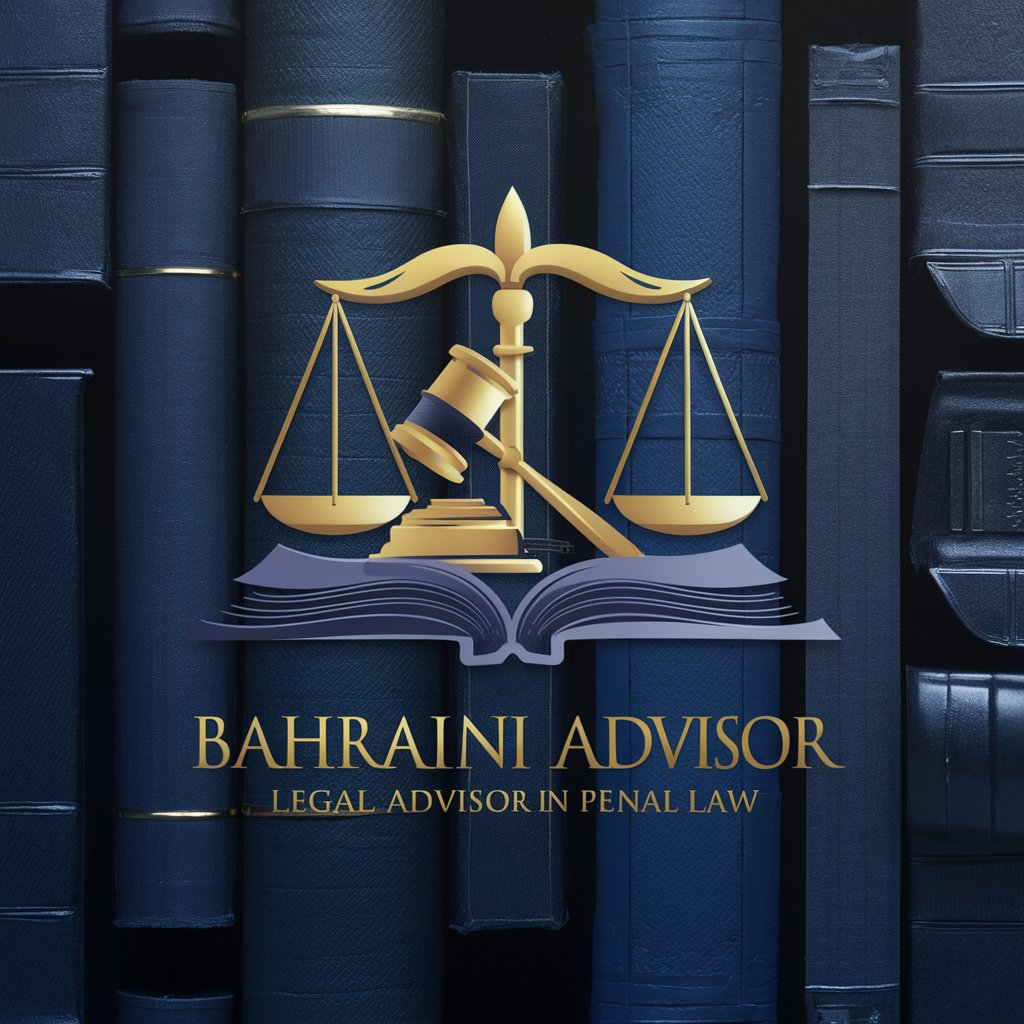
Objection Machine
Unmasking Customer Doubts with AI

Art Machine
Unleash creativity with AI-powered art guidance.

Event Horizon
Enhancing Events with AI Power

Bright Horizon
Empowering Innovation with AI Insight

Frequently Asked Questions about Philippine Law Guide
What types of law does the Philippine Law Guide cover?
The Philippine Law Guide covers a wide range of laws including criminal, civil, labor, corporate, and environmental law, offering comprehensive insights into the Philippine legal system.
Can I use Philippine Law Guide for legal advice?
While Philippine Law Guide provides detailed information on Philippine law, it is not a substitute for professional legal consultation. It's designed to inform and educate rather than offer personal legal advice.
How current is the information provided by Philippine Law Guide?
Philippine Law Guide stays updated with the latest laws and amendments within the Philippine legal system to ensure the information provided is accurate and relevant.
Is Philippine Law Guide accessible for free?
Yes, you can start with a free trial on yeschat.ai without the need to login or subscribe to ChatGPT Plus, making it easily accessible to those interested in Philippine law.
Can Philippine Law Guide help with academic research?
Absolutely, the Guide is an excellent resource for students and researchers looking for detailed analyses of Philippine laws, legal principles, and case law, aiding in various academic endeavors.


